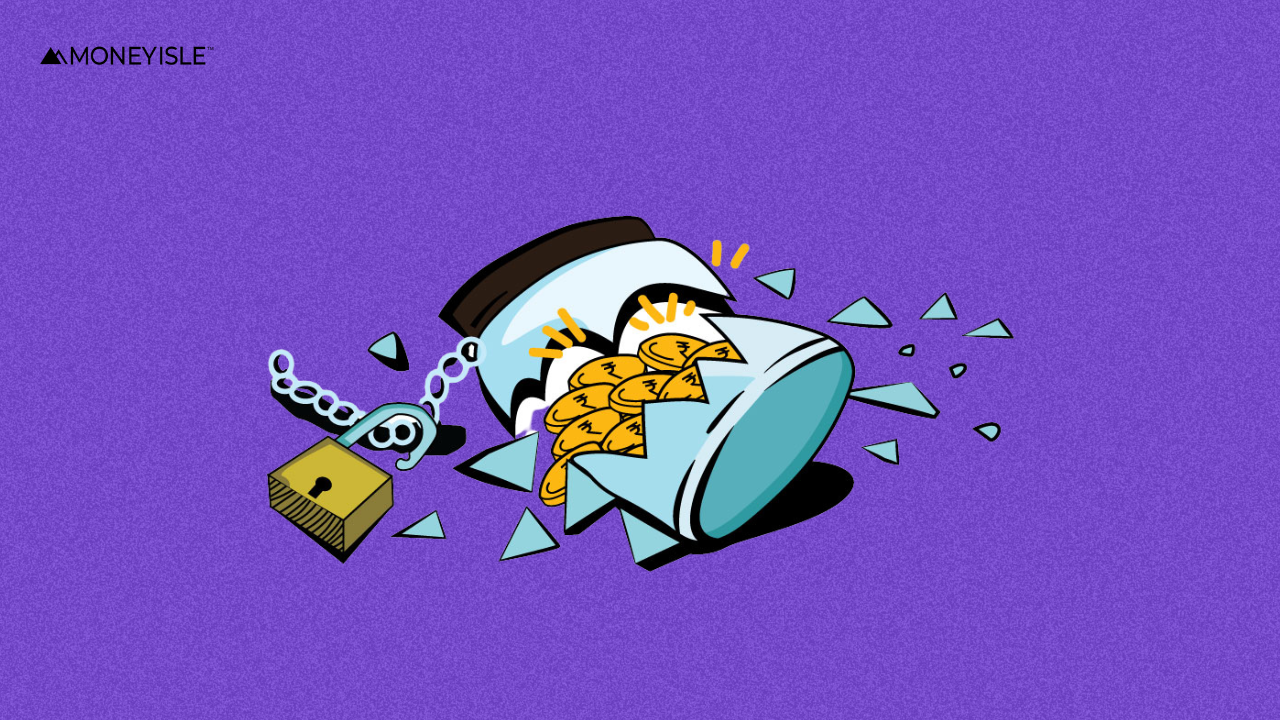Getting your hands on your own credit card could be difficult when you have no (or very less) credit score. In fact, that’s one of the primary reasons why your personal loan applications could get rejected.
However, when you apply for a credit card against your fixed deposit, you eliminate the need for certain things, that include:
- Individual loan applications
- A good credit score
- Having a stable income
With the popularity of credit cards in India, a lot of people have been trying to get their hands on one. Banks however don’t exactly accept every application because of many reasons.
That’s where FDs jump in. Fixed deposits allow you to borrow a certain amount that’s loaded into your credit card. This means that rather than a bank filling up your credit card, you are borrowing money from your fixed deposit with the bank and paying it back every month.
Now is that something you should consider? Let’s find out.
How does the concept of a credit card against FDs work?
After you have deposited funds into your FD account, there could always arise situations where you’d want to get your hands on some of these funds, at least for some time.
That’s where you can get a credit card against your fixed deposits.
Secured credit cards are a great way for people with little to no existing credit score. This not only helps them build their credit score but also serves as collateral for their deposits.
For credit cards against fixed deposits, the credit limit usually is limited to about 80 to 85 percent of the total amount in your fixed deposit.
Let’s say you have deposited an amount of ₹1,00,000 in a bank. Your credit card against this FD will be about ₹85,000 per se.
Who should get a credit card against an FD?
Whether you are,
- A salaried person with a low income
- A homemaker
- A salaried person with inaccessible proof of income
- A borrower with a low (or zero) credit score,
having a credit card against your FD is a good way to manage your expenses.
Most importantly, you can also get hands-on such a credit card if you are a student or a retired individual.
There is a myriad of benefits that are associated with a secured credit card. When compared to unsecured credit cards, you can easily avail more benefits that could help you keep a certain amount of money accessible for yourself that you have a total control over.
Some of these benefits include:
- Very limited documentation required
- Cards are sanctioned without considering your credit score or history
- Cards could be issued without any need for proof of income
- There are comparatively lower interest rates as compared to regular credit cards
However, despite these benefits, there are also some downsides to having a credit card against your FD.
What you need to know before applying for a secured credit card?
Although there are many benefits of owning a secured credit card against your FD, there are also some things you need to consider before applying for one:
- In situations where you might have to break your FD for whatever reason, you can’t begin the process until all the credit card dues are paid. This means that until you don’t repay the entire amount you borrowed against your FD, you can’t unlock your FD.
- If you fail to repay the borrowed amount, it will be deducted from your fixed deposit account. At times, there are fees and interest charges added to this process as well.
- If you fail to repay your dues, the credit score you have been building will also be negatively affected, something you don’t want to let happen.
So what happens if you default on your payments?
Let’s take an example to understand this.
Suppose you have a fixed deposit of ₹1,00,000 in your bank account. You spend ₹40,000 through your credit card yet are unable to pay it back.
The bank will take ₹40,000 from your account with interest against your FD, leaving you with less than ₹60,000 (because of course, taxes, and interest).
However, that won’t be all. It will also negatively impact your credit score and take a hit on your credit history in the long run. This means that when you decide to apply for another loan in the future, chances are that you might not be able to get approval on them.
It’s always a good idea to clear the debt on your credit card first and then bring your score up. Only then should you break your FD.
Eligibility criteria to apply for a credit card against your FD
Though most banks have their own set of guidelines to apply for a credit card against an FD, all of them are going to follow a baseline of the following two rules:
- You should be at least 18 or older
- Your FD’s value and tenor need to match the minimum amount and tenor mentioned by the issuer
Issuing a credit card against your FD is a great way to establish more control over your money and be disciplined with your spending. Since you know you are borrowing against your own money, you have an incentive enough to keep repaying your money every month.
It’s always advisable to keep clearing your dues every month to build a good credit score.











